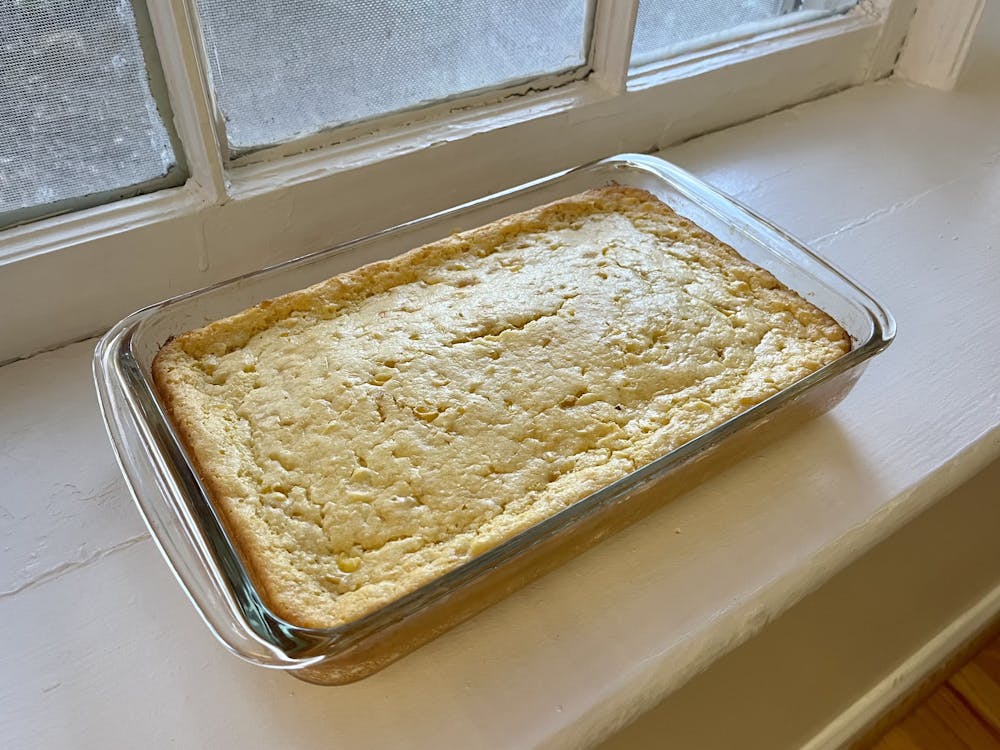Everyone knows that eating sugar begets eating more sugar. Once you start, your body continually craves more until your biological clock tells you — it’s noon, have you eaten some processed sugar yet?
I recently realized that I was at this point and beyond — intentionally stuffing my pockets with cookies so I could instantly satisfy my sugar craving right when it hit. After many days of
gallivanting through Grounds with cookie crumbs in my pockets, my body and acne-ridden face finally told me — you gotta stop.
Thus seven days ago, I made a sacred pact to never touch anything beyond two grams of sugar — no cookies, no brownies, no coffee creamer, no juice, no nothing.
About six days and 21 hours ago, I ate seven Insomnia cookies in one sitting.
Yes, no less than three hours into my sugar-free diet, I consumed nearly 5,000 grams of sugar. It was as if as soon as I made the conscious decision to eat less sugar, my mind went into panic mode, and all I could think about was the sugar that I was missing out on. Thus, when a kind and unknowing friend displayed a tantalizing box of warm, freshly baked Insomnia cookies in the cold dungeons of Clark library — how could I resist? How could I resist eating just one? Why not eat seven?
As I walked home that night groaning from my aching tummy and sense of self-loathing, I thought why did that happen? It’s one thing to cheat on your “diet” a few hours into it. But why did I feel compelled to eat not one, but seven cookies — a number of cookies far beyond what I would have attempted when I was not on my sugar-free diet.
Researchers often call this phenomenon the “scarcity effect.” As soon as something is perceived as scarce, the mind goes into overdrive — tunneling in on what is lacking and tuning out everything else.
This makes sense biologically. Back in the days of hunting and gathering, having crystal clear focus on finding food ensured you would survive. A mind too easily distracted would simply starve.
Today, this applies to more than just food. Many studies have shown psychological parallels of tunnel vision between the starving and the poor. Both groups obsessively talk and think about what is lacking in their lives. The benefit is that what’s “inside the tunnel” is crisp and clear. For example, research shows that the poor are much better than the rich at finding the best deals and saving their day-to-day earnings.
The drawback is that everything outside the tunnel is secondary. Long term effects and external factors are rarely inside the tunnel leading to short-term decision making. The poor are often so invested in saving money for the day to survive, they don’t have the psychological room to focus on investments or making sure their kids do their homework so they get a good education.
As a metaphor, imagine I told you to remember these eight numbers — 57613583. If you were forced to remember those eight digits, you would have little mental capacity to think of anything else. You probably barely even processed that last sentence because your mind was occupied with 57613583. Only a few hours from now when you’ve securely memorized those numbers can you potentially turn your thoughts to other things. In the same way, those who feel scarcity often cannot think of anything beyond that until their scarcity is satisfied.
First year, I severely lacked friends. In every fumbling conversation with new people, I was so focused on finding friends all I could think was, “Do they like me? Am I weird? Could they be my friend?” Meanwhile, I was not paying attention to what other people were actually saying or how my body language looked. I cringe to think about the anxious faces I must have held through every preliminary conversation. Of course, this did not help me make friends. People generally want to avoid the anxious and socially awkward. It seemed the more I tunneled in on making friends, the worse I became at doing so.
This is where the scarcity effect becomes a trap. This focused vision, though potentially helpful in the short term often leads to self-fulfilling prophecies of deeper poverty, hunger or loneliness. Though my sugar-free diet is not as grave as these things the scarcity effect certainly did not help my eating habits and in fact made it worse.
Now perhaps you don’t feel scarcity in friendships, sugar or money. But what about time? These days I feel an intense scarcity of time forcing me to tunnel in on only that which will build my resume or GPA. Everything else — music, art, resting, exercising — gets thrown out of the tunnel.
Ironically, by being so consumed by that one career, class or friendship we might in fact be impeding our ability to reach that goal. If resting is not in the tunnel, we will eventually fall apart. If friendships are not in the tunnel, we will eventually run out of support. If silly, fun things are not in the tunnel, we risk early burn-out over what was supposed to be our dream. At the very least, if all our mental bandwidth is consumed with questions of “Am I doing enough? Will I get there?” how are we supposed to remember those equations for that next chemistry exam?
So as I’m trying to reach this goal of eating less sugar, perhaps the strategy is not to make sugar scarce. Instead, maybe I should fill my life with things that I enjoy more than 24 grams of sugar in a bottle. That way, my mind won’t be tunneled in on what is lacking but be overflowing with things I love and cherish.





